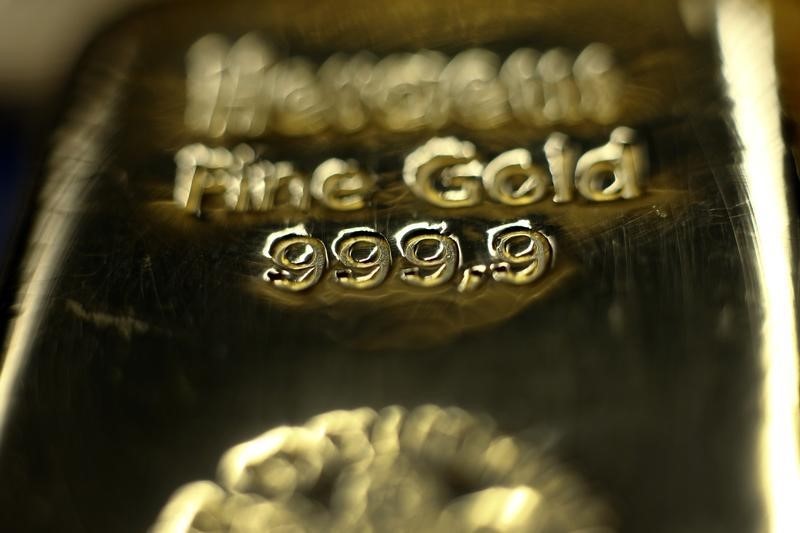* London market re-examines OTC gold trade
* Exchanges vie for London gold futures contracts
* China's benchmark ambition could further hit London
liquidity
By Clara Denina
VIENNA, Oct 19 (Reuters) - As the London gold market enters
its next phase of reform, a sense of urgency is key because
competitors, including commodity consuming giant China, are
poised with new products to grab liquidity and global influence.
Global liquidity is shrinking due to persistently low gold
prices as the market still struggles to shake off the impact of
a seismic crash two years ago. Bruised investors have largely
stayed away, while dealing desks have also become smaller.
London, currently the global market nucleus, is re-examining
the way bullion is traded after sweeping reform of its price
benchmarks.
At the same time, China, the metal's largest consumer and
producer, is aiming to become a price setter with its
yuan-denominated gold benchmark by the end of 2015, a move that
could beat any rivals' effort to increase market share.
"There are too many vested interests and China is likely to
win the main prize, because it wants to influence the prices of
the commodities it is the biggest user of," one senior London
trader said at the opening of the gold industry's annual
conference, this year in Vienna.
The London Metal Exchange (LME)'s CEO Garry Jones said last
month it was in talks with those in the gold industry over the
launch of a precious metals derivatives. ID:nL5N11G2ZG
The Chicago Mercantile Exchange (CME) CME.O is also
developing a European gold futures contract to serve customers
in London, sources told Reuters in May, in what would be a
direct challenge to London's traditional cash market.
ID:nL5N0YC3W8
The need to make the $5 trillion a year over-the-counter
market more transparent, profitable and liquid led the London
Bullion Market Association (LBMA) to formally ask exchanges and
technology firms to bid for services such as a gold exchange or
a clearing platform.
Greater regulatory scrutiny, which has already forced
changes in how precious metals prices are set, has not mandated
central clearing but the industry accepts that larger changes
lie ahead.
"Central clearing is the way forward, because brokers are
finding more difficult to have credit lines open with the few
counterparties left, given that many are withdrawing," the head
of gold trading at a European bank said.
As prices of commodities tumble and profits shrink, banks
and brokers, including Deutsche Bank (DE:DBKGn) and Mitsui, have retreated
from the London gold market.
"Some players don't wish to play anymore. This trend is not
good news," said Adrian Ash, head of research at BullionVault.
"Markets need market makers -- willing to quote firm prices
to buy and to sell -- and the more the better. Fewer
participants risks less competition, wider spreads, and lower
trading volumes."
In the meantime, European traders see that China's plan to
launch its yuan-based price via the Shanghai Gold Exchange will
work, if yuan convertibility into a global currency takes off.
"China is already taking liquidity from the London market
and will make its best effort to continue to do so," another
trader said.
The SGE has already launched an international platform of
the bourse last year, allowing foreign players to trade
yuan-denominated gold contracts for the first time.
